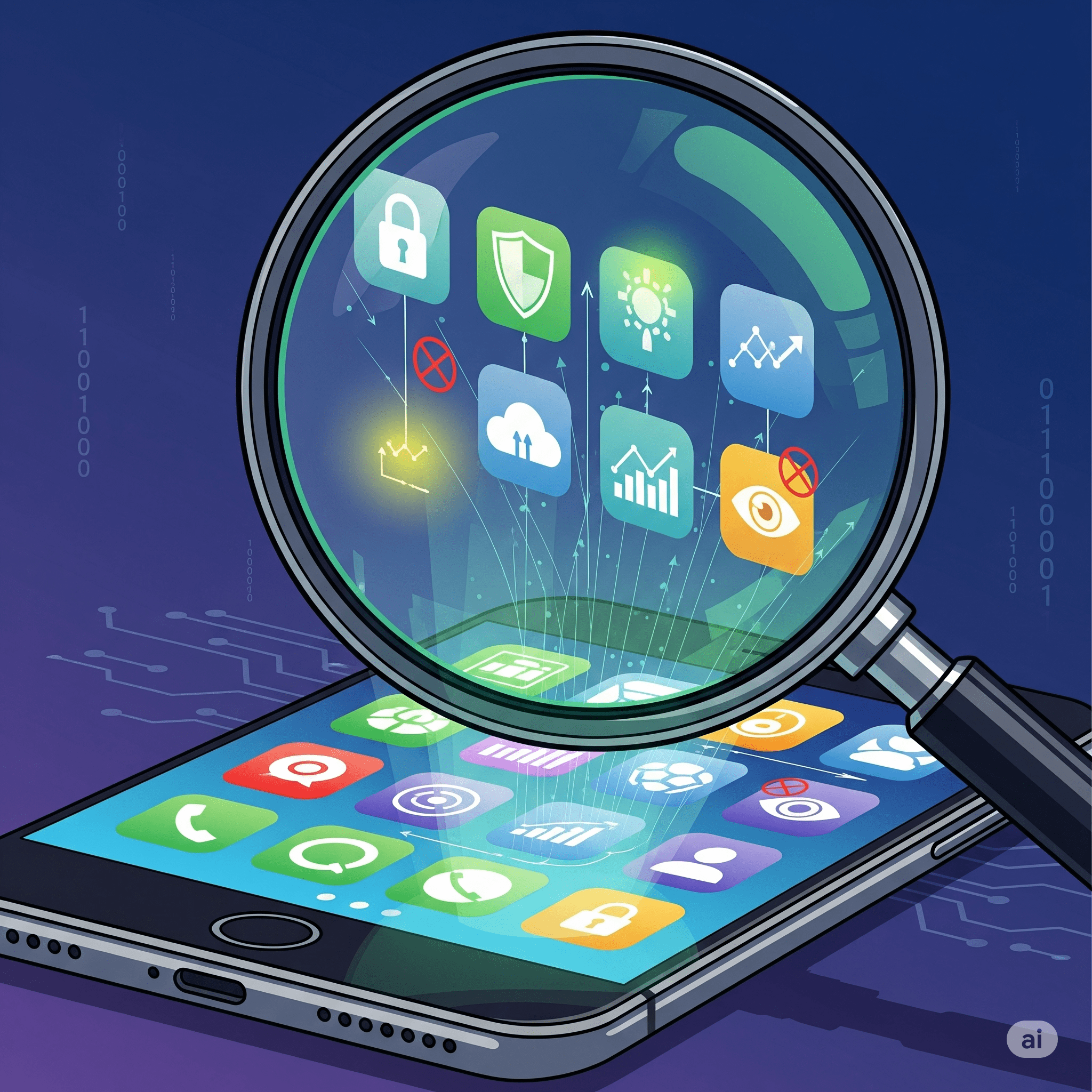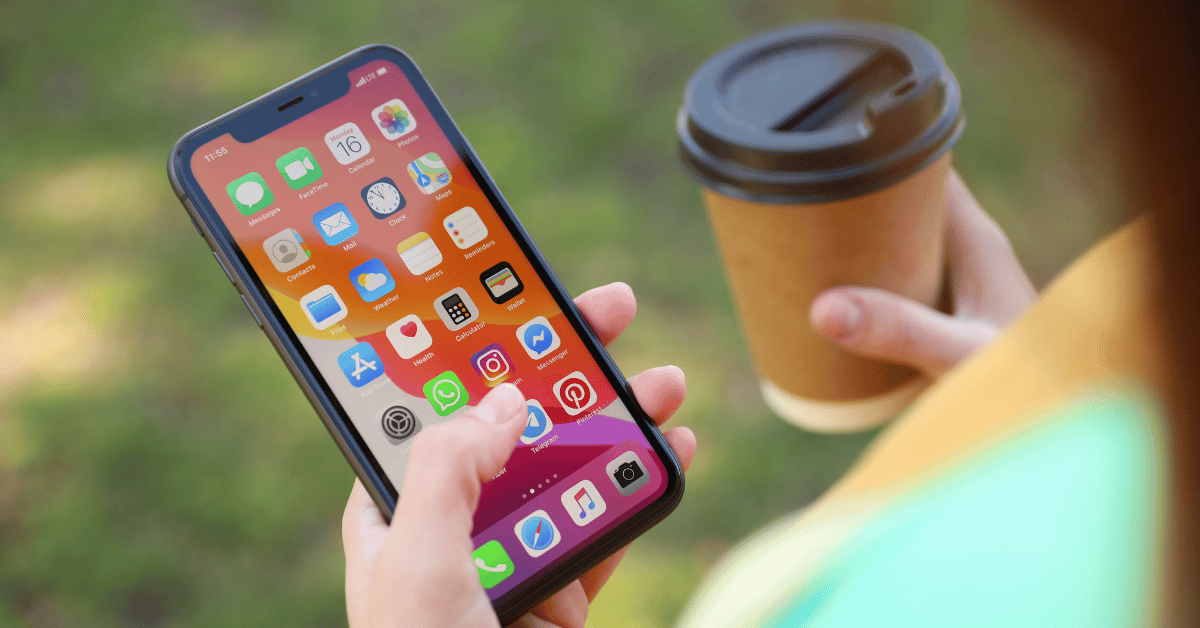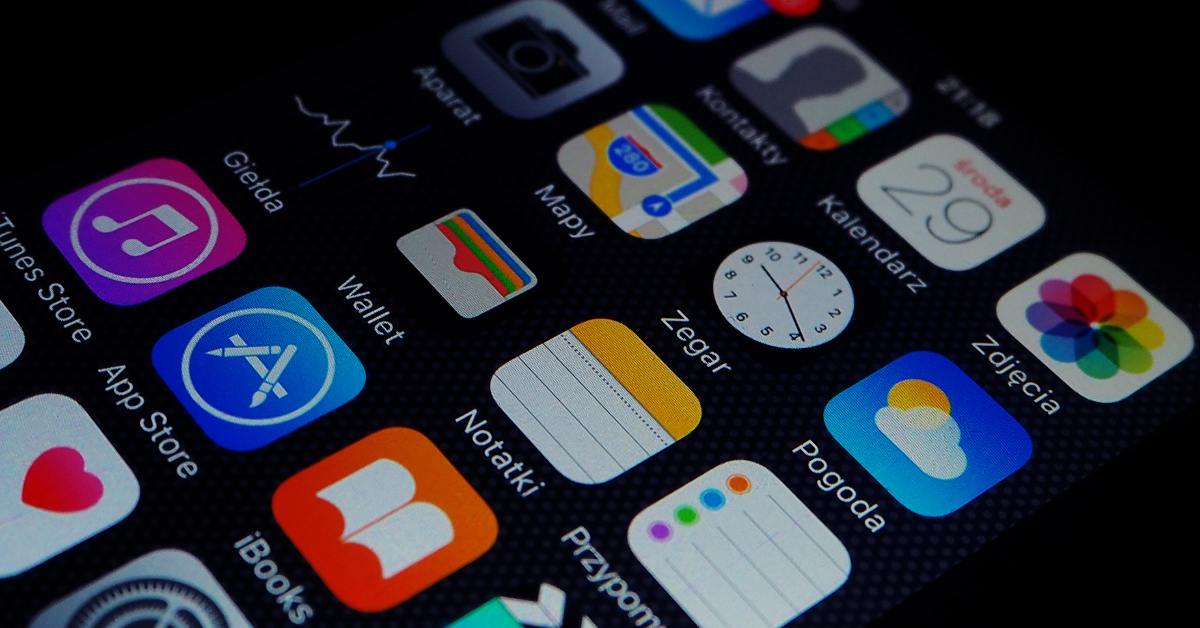Social Media
The 2025 App Privacy Index

In today's digital world, we delegate our lives - our schedules, our finances, our most personal conversations - to the apps on our phones. We trust them to connect us, to simplify our lives, and to keep our private information safe. But is that trust well-placed?
The research team at Tenscope launched the 2025 App Privacy Index to answer that question. We conducted an exhaustive analysis of the 100 most popular free apps in the United States to measure not just what data they collect, but how their design influences our decisions to share it. Our findings reveal a troubling trend of "deceptive design," where confusing interfaces and vague language are used to gain access to our most sensitive information.
"Good design empowers users, but what we found is a landscape where design is often used to manipulate them," states Jovan Babovic, Creative Director and Co-founder of Tenscope. "This report isn't just a list; it's a call for greater transparency and a guide for consumers to reclaim control of their digital identity."
Our Key Findings
Our analysis of 100 top US apps uncovered several critical trends about the state of digital privacy.
- Tracking is the Norm: A staggering 75% of the top 100 free apps collect data specifically to track users across other apps and websites for advertising purposes.
- Messenger is the Worst Offender: With a perfect score of 100/100 on our index, Meta's Messenger is the #1 most invasive app on our list. It collects over 20 times more weighted data than some of the most private apps on our list.
- Your Ride is Watching: It's not just social media. Lyft, the popular ride-sharing app, ranked as the 3rd worst app for data privacy with a score of 69, collecting more data than shopping giant Amazon and even Google Maps.
- Privacy is Possible: Our analysis also identified apps that deliver great functionality with minimal data collection. Apps like ParentSquare (score of 4) and Microsoft Edge (score of 11) prove that a privacy-conscious design is achievable.
The Most Invasive Apps Of 2025
These ten applications received the highest scores in our index, indicating they request the most extensive and sensitive user permissions. The higher the score, the greater the privacy risk.
"The highest-scoring apps have one thing in common: their business model relies on knowing as much about you as possible," Babovic explains. "The user experience is often crafted to normalize this exchange, making constant requests for your location, contacts, and financial info feel like a necessary part of the service."
The 10 'Most Private' Apps of 2025
On the other end of the spectrum, these apps deliver their services while requesting minimal access to sensitive user data. They serve as a benchmark for what privacy-conscious design looks like.
"What this list proves is that data collection is a choice, not a necessity," Babovic adds. "These companies have prioritized user trust by designing their platforms to function effectively without harvesting unnecessary information. It's a fundamentally different approach to user experience."
Deceptive Design Patterns to Watch For
Our research identified several common UX/UI tactics used to encourage users to grant more permissions than necessary.
- The 'All or Nothing' Consent: This occurs when an app bundles multiple unrelated permissions into a single request. For example, a photo editing app might ask for your Contacts and Location at the same time it asks for your Photos. The design pressures you to accept everything at once, or risk losing core functionality.
- Vague and Just-in-Time Requests: Apps often wait until you try to use a specific feature to ask for permission. A social media app might not ask for your microphone access until you tap the "record video" button for the first time. This "just-in-time" request feels reasonable in the moment, but it gets you to grant permanent access for a one-time use.
- The Hidden Settings Maze: Revoking permissions after you've granted them is often intentionally difficult. Privacy settings can be buried under multiple layers of menus with confusing labels, discouraging users from managing their data after the initial setup.
The Complete 100-App Ranking
Below is the complete, ranked list from the 2025 App Privacy Index.
Methodology
The Tenscope research team analyzed the 100 most popular free applications in the US Apple App Store as of August 2025. We collected all permission disclosures listed in the "App Privacy" section for each app. To create the index, we first calculated a weighted "Original Score" by assigning points to each unique data point based on its category: 3 points for each "Data Linked to You" permission, 2 points for each "Data Used to Track You" permission, and 1 point for each "Data Not Linked to You" permission. This score was then normalized to a 0-100 scale to create the final "Privacy Score," where 0 is the most private and 100 is the least private.














